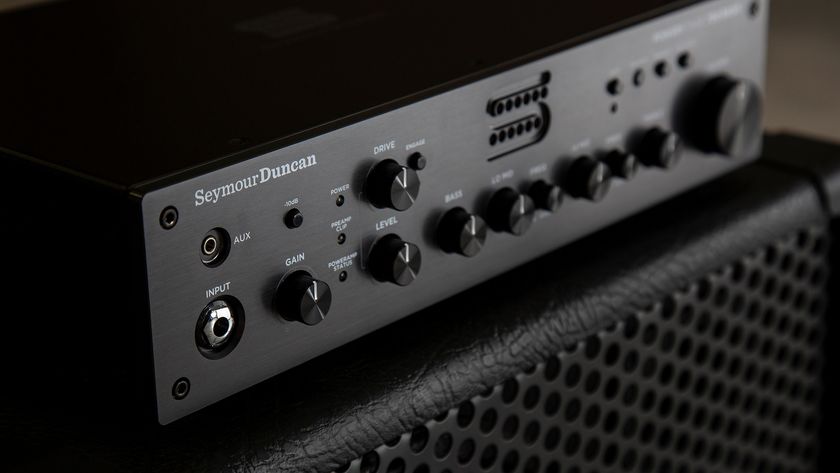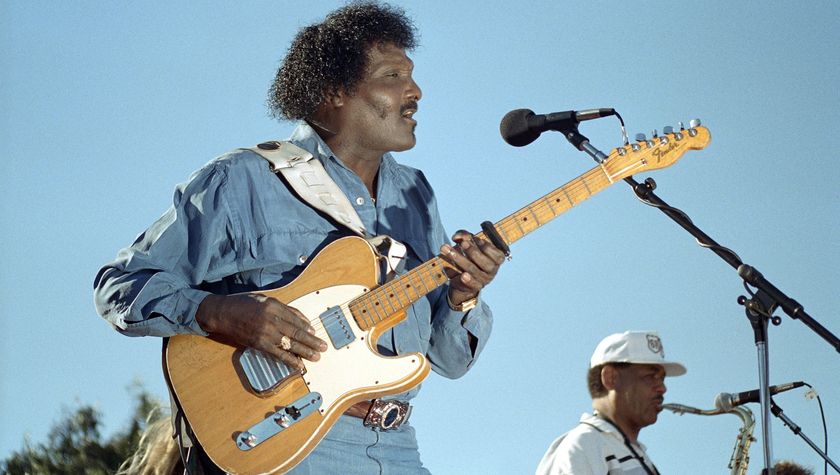Interview: Guitarist Lee Ritenour Delivers 'Rhythm Sessions'

In a career that spans five decades and more than 40 albums, guitarist Lee Ritenour has developed a unique balance between the wisdom of experience and the enthusiasm of youth.
Ritenour’s 2010 album, 6 String Theory, focused primarily on guitar and featured the winners of his 2009 guitar competition alongside guest appearances by guitar greats B.B. King, Steve Lukather and Slash, among others.
For his new album, Rhythm Sessions Ritenour has added the winners of his 2012 Rhythm Section Competition, which includes aspiring keyboardists, bassists and percussionists as well. The result is an album of sonic euphoria. From catchy songs like “The Village” and “LA By Bike” to the hypnotic vocal of Zamajobe on a remake of Stereophonics' “Maybe Tomorrow," there are elements that will appeal to both guitar and jazz fans alike.
I had the chance to speak with Ritenour about Rhythm Sessions, the competition and a really cool story about his days as a session player.
GUITAR WORLD: You’ve released more than 40 albums over the course of your career. What do you find most rewarding about the creative process?
I always love making albums. I’m passionate about it and it’s something that’s healthy for the soul and spirit. The ramp up to making one is like you’ve never done one before. There’s always that pressure of having to do something new and unique, and it’s a growth process. It’s like going back to school.
Tell me how the 6 String Theory Competition got started.
Get The Pick Newsletter
All the latest guitar news, interviews, lessons, reviews, deals and more, direct to your inbox!
It actually started a few years ago with my album, 6 String Theory. In 2010, I had been playing guitar for 50 years. It was an anniversary, and since the guitar has been such a great gift for me, I wanted to do something to celebrate that. So I made an album with a lot of guitar greats like B.B. King, George Benson, Slash and Steve Lukather, along with some younger talent like Andy Mckee and Guthrie Govan. Then I thought it would be cool if we could get some really new talent and round it out. We would have someone like B.B. King (who’s in his 80s) all the way down to someone who was just starting their career. That started the ball rolling for the 6 String Theory Competition.
We got Berklee College of Music involved, and they ended up giving a full four-year scholarship to the winner. Yamaha sponsored the competition and D’Adarrio Strings and Monster Cables were also a big part of it.
This year, I wanted to focus on all-star rhythm sections, so we expanded the contest to include winners of piano, bass and drums and have them join us for a track. The scholarships have gotten bigger (There are now four of them) and The Crown of the Continent has sponsored the competition. It’s a great guitar festival held in Montana.
How do you compose your songs?
It’s a very interesting process. I always recommend to any player to always compose their own music. It’s one of the best things you can do to find a road to your own style.
I have a process writing wise that I like to do. There’s a theme on the record of the bicycle, and I actually like to compose while I’m riding. Sometimes what I’ll do before hand is record a 30- to 40-minute jam in my studio, then put it on my iPhone and take it along with me to listen to while I ride. Sometimes there’s nothing in that 30 to 40 minutes, but sometimes there might be one minute where there’s a really cool idea. When I get home, what I’ll do is check it out and sure enough, there will be something there that inspires something else.
One of my favorite tracks on Rhythm Sessions is "Maybe Tomorrow."
Zamajobe is great. She’s a terrific singer from South Africa. I first heard that song years ago when the Stereophonics did it. To me, the original version of song has more of an old-school American '70s R&B vibe. We rearranged it a little differently and put her hypnotic vocal on it.
You mentioned working with guitarists like Steve Lukather and Slash on 6 String Theory. What was it like working with those guys?
Lukather and I have known each other for a long time. We were both session players at the time when he was just coming up and Toto was just getting started. He’s a great guitar player. I asked him to work on 6 String Theory early on, and he co-produced some of the tracks.
Slash came in and overdubbed on one of the tracks late one night. He knew of me but we didn’t really know each other. Later he told me that with all of the guitar players hanging around, he felt a little bit self-conscious, but he played great. He’s a terrific guy.
Do you have an interesting story about your early session days?
I do remember a time back when I worked with Pink Floyd on The Wall. I was a studio player at the time and had a huge studio trunk with about 15 guitars in it (various types of acoustics and electrics). I wanted to make a big first impression. I went in with a huge pedal board and a big rack thinking to myself, “I’m really going to go in and impress these guys. I’m going to walk through the door with all of my shit. It will be cool!”
So, I walk in the door of the studio and [David] Gilmour must have had 75 guitars lined up. The most vintage, best guitars I’ve ever seen, all sitting on stands around the studio along with an equal amount of amps and everything else you can imagine. Needless to say, my system didn’t look quite as impressive after that! [Laughs]
Keep up with Lee Ritenour at his official website. Check out the 6 String Theory Competition right here.
Photo: Rob Shanahan

James Wood is a writer, musician and self-proclaimed metalhead who maintains his own website, GoJimmyGo.net. His articles and interviews are written on a variety of topics with passion and humor. You can follow him on Twitter @JimEWood.
James is a guitarist and freelance writer who's interviewed some of the biggest names in music. He is the author of four books and his writing credits include work for Guitar World, AXS and Yahoo! as well as for his hometown newspaper where he writes on a variety of topics with both passion and humor. As a guitarist, he's performed everywhere from local bars and nightclubs to some of the biggest stages in front of thousands of music fans.

“I get asked, ‘What’s it like being a one-hit wonder?’ I say, ‘It’s better than being a no-hit wonder!’” The Vapors’ hit Turning Japanese was born at 4AM, but came to life when two guitarists were stuck into the same booth
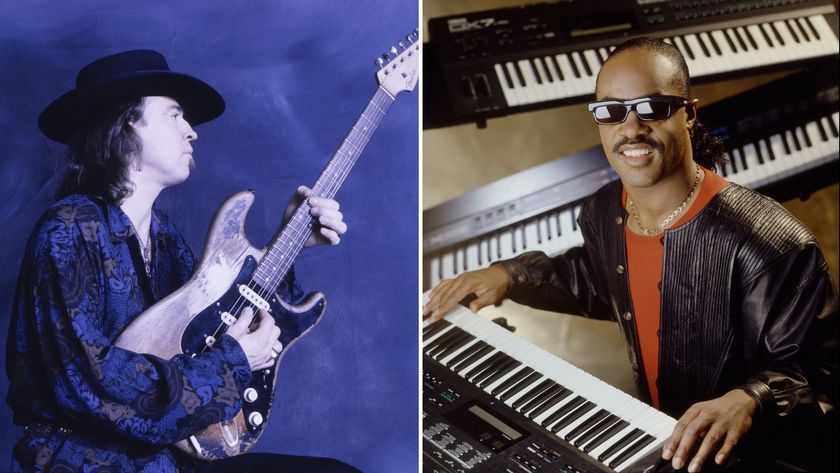
“Let's play... you start it off now, Stevie”: That time Stevie Wonder jammed with Stevie Ray Vaughan... and played SRV's number one Strat

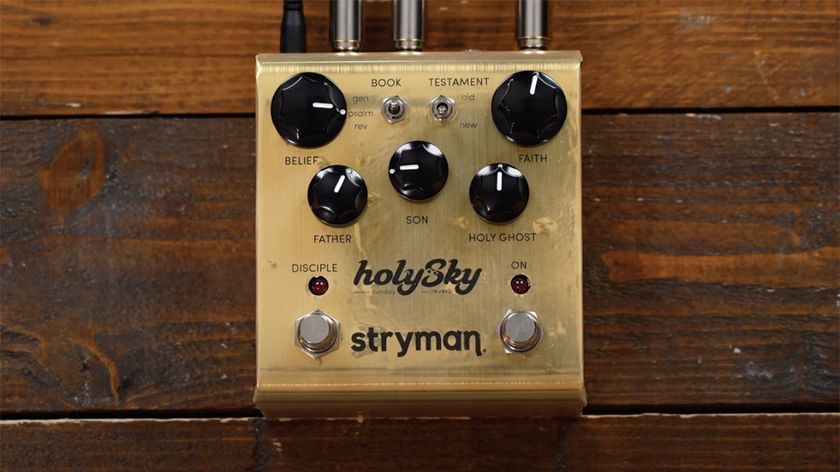
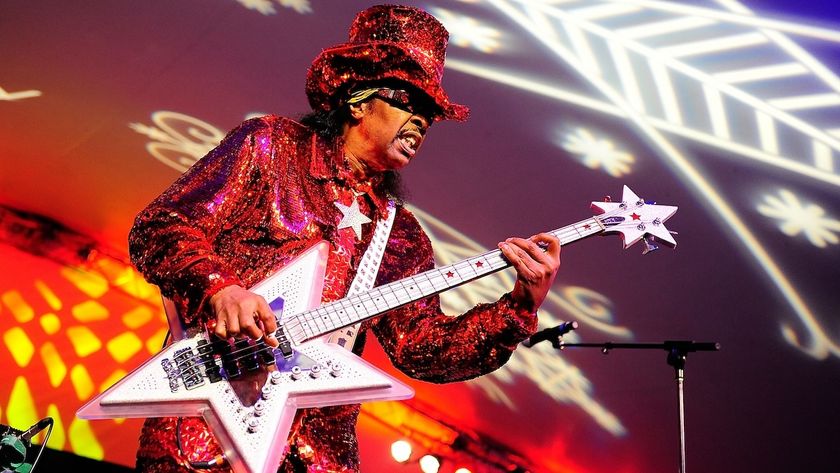
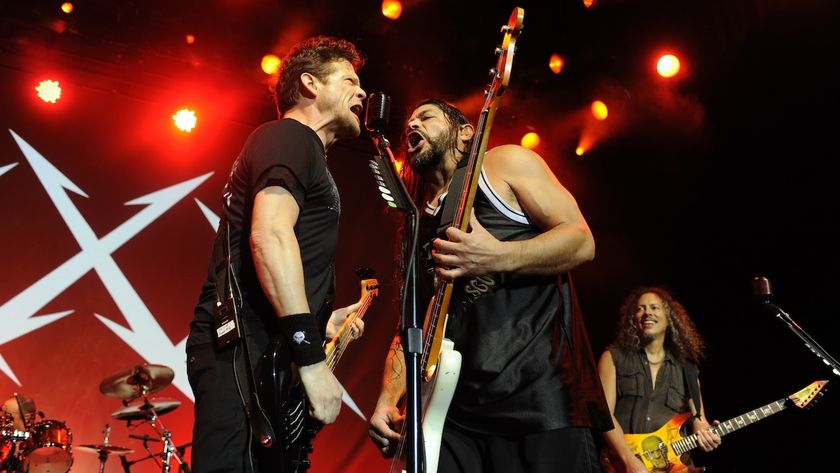
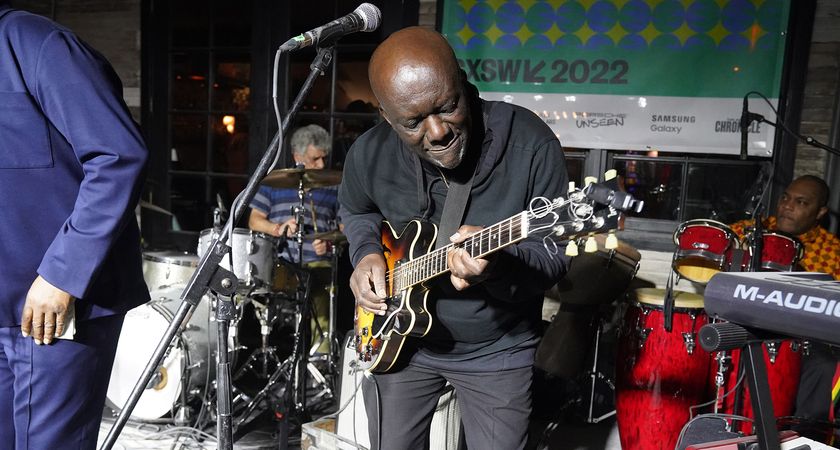
![[L-R] George Harrison, Aashish Khan and John Barham collaborate in the studio](https://cdn.mos.cms.futurecdn.net/VANJajEM56nLiJATg4P5Po-840-80.jpg)
